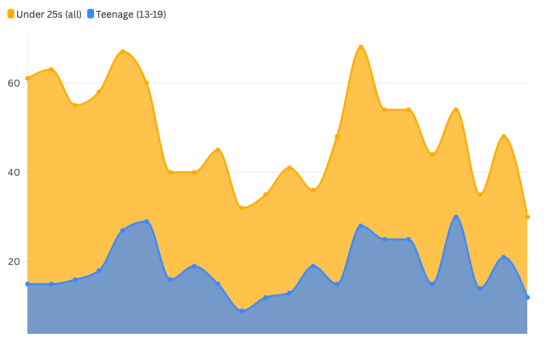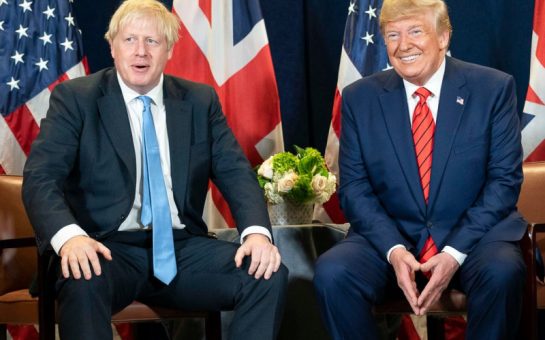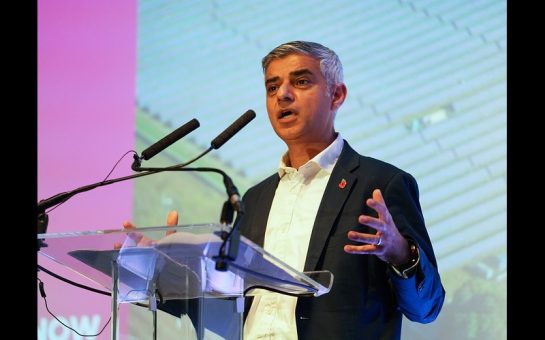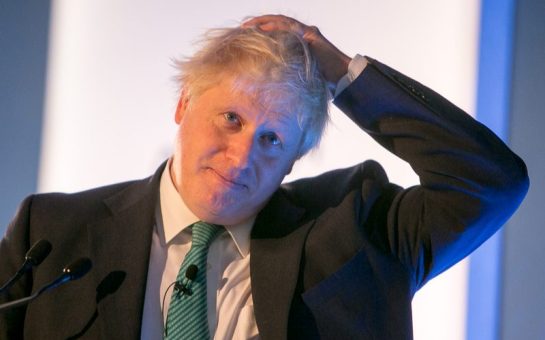Disappointment for Labour’s Ken Livingstone in close election race

BORIS Johnson defied the national trend to secure re-election as London mayor – but the Conservatives suffered losses in the race for Assembly seats.
Johnson will now lead the city into this summer’s London 2012 Olympics and has vowed to serve a full four-year term despite speculation linking him to a future run as Conservative Party leader.
The former newspaper reporter, MP and part-time gameshow host clearly resonated with Londoners – although only just.
With a 45% turnout, Johnson received 971,931 of first preference votes compared to Livingstone’s 889,918. With no overall winner emerging, second preference votes were counted – Johnson securing his victory by 1,054,811 votes (51.5%) to 992,273 votes (48.5%).
His ability to split the vote – getting Labour supporters to back him in the mayoral vote but stay with the party in Assembly races – is certainly damning for former mayor and Labour candidate Ken Livingstone, although he got closer than some expected.
“Tomorrow we continue with our work,” said Johnson.
“Cutting council tax, more police out on the street, investing in the great transport, housing and regeneration projects that will create 200,000 jobs over the next four years.
“I will dedicate myself to making sure that Londoners and above all young Londoners are ready to take the jobs that this amazing city creates.
“I will fight for a good deal for Londoners and a good deal from the government that will help us deliver prosperity for everyone in the city.
“I want to thank the people of London. I want to thank the people of the city, the people who voted for me, those who didn’t, those who thought about it and voted and those who thought about it and didn’t.
“In 84 days’ time London will welcome the world and the world will see a city which is undergoing a neo-Victorian surge in investment.
“The Jubilee Line, I am proud to say, is now going three miles an hour faster on average than it was four years ago, where the murder rate is down 25% and where the Olympic and Paralympic venues have been completed on time and under budget.”
But Livingstone’s 40-year career as a political force in London, starting as a Lambeth councillor, moving onto the Greater London Council and then serving as an MP and eight years as mayor, is now over.
At 66 it appears unlikely that a politician famed for his comebacks would get another chance, with Tottenham MP David Lammy already tipped to run in 2016.
“This is my last election. 41 years ago, almost to the day, I won my first election. Since then I have won 11 more elections and lost three but the one I most regret losing is this,” he said.
“But I hope the closeness of this result didn’t give the Prime Minister indigestion over dinner.
“Whilst Cameron is dragging the Tory party down, I suspect this result has settled the result of the next Tory leadership election.
“It’s been a gruelling campaign and I apologise to all those people that worked so hard for me at this election.
“I’m truly sorry that I couldn’t pull this victory off but I’m incredibly proud of our team and their hard work.”
However, it was still closer than some were predicting at the start of the day, Johnson edged to victory thanks to his greater share of the first and second preference votes.
But he didn’t learn his fate until just before midnight after counting problems in one constituency, Brent and Harrow, where two boxes of votes were not initially counted, delayed proceedings.
Johnson though faces a tough battle in the Assembly, especially with regards to his budget.
Conservatives lost Barnet and Camden and Ealing and Hillingdon to Labour, who are now the largest party in the Assembly, where two thirds of the 25-strong membership can combine to block Johnson’s spending agenda.
Liberal Democrat candidate Brian Paddick clearly felt the full force of a country-wide backlash against his party, as he finished fourth.
The former Metropolitan Police commander gained 236,685 first preference votes four years ago but he saw this plummet to just 91,774.
He was beaten into third by Green Party candidate Jenny Jones and, for a long period of the day, was behind independent candidate Siobhan Benita.
Jones was elected as one of the Assembly’s London-wide members but admitted working with Johnson was going to be tough.
“I thought Ken could do it, I really did. I thought it was looking good but the Boris factor just overwhelmed it,” she said.
“I’ve got four years now in the Assembly, I’ll work my socks off to try and get our policies through and make an impact but it’s going to be very difficult with a Tory mayor.”
But the Green Party candidate admitted she never expected to find herself in third place, with her party also placing third in the ballot of London-wide Assembly members.
“I really can’t let my emotions go yet because I could easily cry. It’s so exciting,” she added.
“I do feel quite emotional about it because we’ve been saying the same things for 40 years more or less.”
Paddick acknowledged his performance was poor but backed under-fire Liberal Democrat leader, and deputy Prime Minister, to rebound after an electoral kicking at ballot boxes around the country.
“It is very easy to be a leader when things are going well, the sign of a true leader is standing firm in the face of adversity,” he said.
“I will continue to work for the people of London in any way that I can and for the Liberal Democrats. Now more than ever is the time that Liberal Democrats have to stand up for what we believe in.”
Reporting team: Natasha Adkins, Robert Edwards, Alice Foster & Adam Tait




